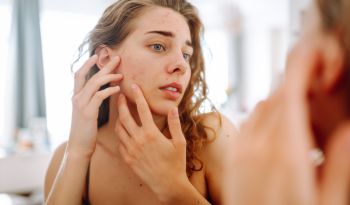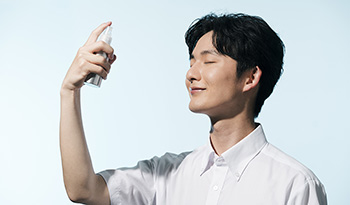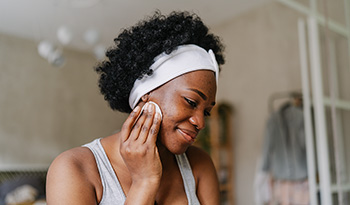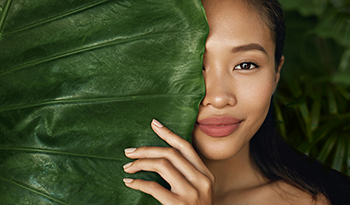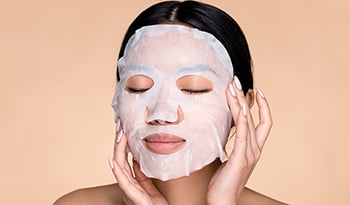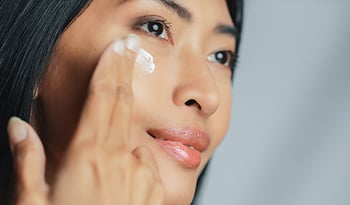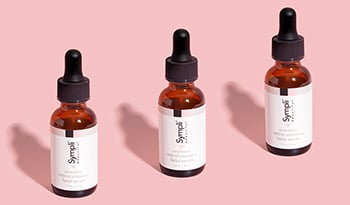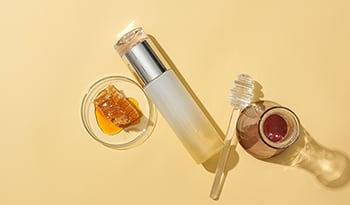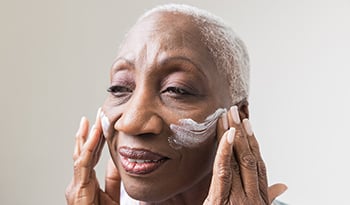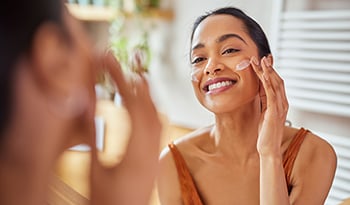Bakuchiol hudvårdsfördelar: Varför det är ett populärt retinolalternativ
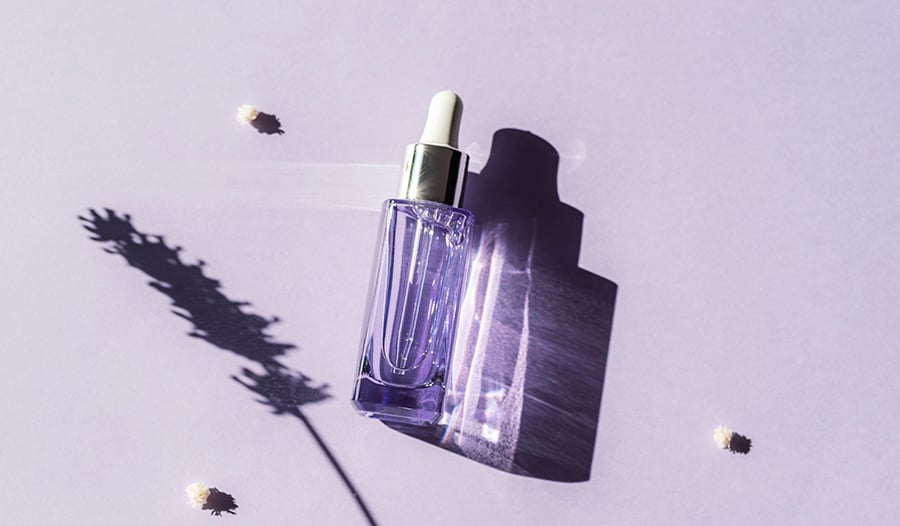
När det gäller hudvård verkar det som om retinol ligger i framkant. Retinol har använts i årtionden för att korrigera och ta itu med hudproblem som är vanliga för åldrande hud som rynkor, fina linjer och mörka fläckar, och har setts som den bästa produkten för att upprätthålla frisk hud. Men för vissa individer, särskilt de med känslig hud, har retinol varit mindre förknippat med frisk glödande hud och mer med rodnad, flagnande och hudirritation. Finns det ett alternativ för personer som är intresserade av hudvård men inte vill använda retinol i sin hudvårdsrutin?
Det finns, och det kallas bakuchiol.
Bakuchiol har vunnit popularitet som ett retinolalternativ som kan erbjuda alla fördelarna med retinol utan några av biverkningarna, särskilt för dem med känslig hud.
Vad är Bakuchiol?
Bakuchiol serum är en hudvårdsprodukt med bakuchiol som huvudingrediens. Bakuchiol är en naturlig kemisk förening som härrör från frön och frukt av Psoralea corylifolia, en växt som används allmänt i forntida medicinska metoder som Ayurveda och traditionell kinesisk medicin. Forskning tyder på att bakuchiol kan ha många användningsområden, allt från att användas som ett svampdödande medel till att hantera symtom som kan uppstå efter klimakteriet.
Medan bakuchiol kan ha flera användningsområden, används bakuchiolserum mestadels för att främja hudens hälsa genom att fungera som en kraftfull antioxidant och potentiellt öka kollagenproduktionen. Intresset för bakuchiolserum kan mestadels hänföras till företaget Avene, ett hudvårdsmärke som väckte stor konsumentuppmärksamhet på serumet. Under de senaste fem åren har sökningarna efter Avene ökat med häpnadsväckande 207%.
Även om Avene kan vara i framkant när det gäller explosionen av intresse för bakuchiolserum, börjar ett antal andra högkvalitativa märken med fokus på skönhet och hudvård erbjuda produkten. Det utbredda intresset för bakuchiolserum för frisk hud kan kopplas till studier som tyder på att bakuchiolserum också kan gynna hudens hälsa genom att minska rynkor och fina linjer, minska missfärgning av huden och till och med potentiell anti-hudcanceraktivitet.
Dessutom tyder studier på att bakuchiol serum kan erbjuda många av samma fördelar som retinolkräm utan några negativa effekter.
Bakuchiols hudfördelar
Bakuchiol serum kan ha några fantastiska hälsofördelar för huden, särskilt för dem som kämpar med känslig hud och inte kan använda retinol. Studier tyder på att bakuchiolserum kan fungera som en potent antioxidant. Genom att rensa fria radikaler kan bakuchiolserum hjälpa till att minska skador på fria radikaler, vilket är kopplat till minskad livslängd. En ökning av skador på fria radikaler i huden är förknippad med minskad elasticitet, en ökning av rynkor och mörka fläckar och en ökad risk att utveckla hudcancer.
Forskning tyder på att bakuchiolserum kan hjälpa till att skydda mot fria radikaler och ultraviolett A- eller UVA-skador. UVA-strålar kommer från solen och tränger djupt in i huden. Exponering för UVA-strålning är kopplad till långvarig hudskada som rynkor, solfläckar och ökad risk för hudcancer.
En studie involverade deltagare som använde ett topiskt bakuchiolserum ensamt eller annan behandling, ett tahitiskt vaniljextrakt, två gånger om dagen i 56 dagar för att bestämma effekterna av behandlingen på UVA-exponering för huden. I slutet av studien såg 26 deltagare en minskning av droppighet i ansiktet med upp till 23%. Den genomsnittliga minskningsgraden var 11%. Dessutom förbättrades hudens utstrålning med i genomsnitt 29% hos 33 deltagare. Intressant nog fann studien att bakuchiolserum kunde minska hudens inflammatoriska svar när den utsätts för UVA-strålning och därigenom skydda huden från solskador.
Bakuchiol och kollagenproduktionsfördelar
Studier tyder på att bakuchiol serum kan bidra till att öka produktionen av kollagen . Kollagen är ett protein som tillverkas av kroppen. Det är en viktig komponent i kroppsstrukturer som ligament och senor.
Kollagenproduktion är också nödvändig för stark, smidig och slät hud. Tyvärr minskar kollagenproduktionen med åldrandet. Studier tyder på att kollagenproduktionen minskar runt mitten av 20-talet till början av 30-talet, med en märkbar förlust av hudelasticitet på 40- och 50-talet.
Bakuchiol serum kan bidra till att minska kollagenförlust och tillhörande rynkor och fina linjer. Flera studier har funnit att bakuchiol serum förbättrar utseendet på naturligt åldrad hud genom att minska fina linjer och rynkor.
Till exempel fann fem studier med över 100 deltagare att användning av bakuchiolserum i 12 veckor minskade hudrödhet, rynkor och fina linjer. Det fanns också en ökning av hudens fasthet och övergripande hudutseende. Studier tyder också på att bakuchiol stimulerar celler som kallas fibroblaster att producera mer kollagen, vilket leder till fastare, mjukare hud.
Bakuchiol antioxidantfördelar
Studier tyder på att bakuchiol serum kan fungera som en potent antioxidant. Genom att rensa fria radikaler kan bakuchiolserum bidra till att minska skador på fria radikaler. Många faktorer, inklusive överdriven alkoholanvändning, en näringsbrist diet och hudexponering för ultraviolett strålning från solen, orsakar ofta skador på huden med fria radikaler. Ökad skada på fria radikaler är förknippad med minskad elasticitet, ökade rynkor och mörka fläckar och en ökad risk att utveckla kronisk hudsjukdom.
Eftersom bakuchiolserum kan fungera som en antioxidant, ungefär som vitamin C eller vitamin E , kan topisk användning bidra till att minska tecken på hudskador. En studie följde 60 kvinnliga deltagare med mild till måttlig solskada samt känslig hud. En tredjedel av deltagarna hade eksem, ytterligare en tredjedel hade rosacea och den sista tredjedelen hade intolerans mot kosmetika. Deltagarna använde bakuchiolserum och en fuktighetskräm två gånger dagligen i 4 veckor. Efter 4-veckorsperioden fann studien att alla deltagare såg en förbättring av både utseendet och känslan av hudens jämnhet.
Studien fann också att det fanns en minskning av fläckar, en ökning av utstrålning och en ökning av hudens övergripande utseende. Bakuchiol serum hade också en anti-aging effekt på huden. Dessutom rapporterade ingen av deltagarna biverkningar som brännande, rodnad eller stickande.
Bakuchiols hudskyddande egenskaper
Forskning tyder på att bakuchiol kan ha skyddande egenskaper, särskilt med avseende på huden. En studie in vitro, eller provrör, fann att bakuchiol undertrycker biologiska vägar som ökar cancercellbildning.
En annan studie fann att administrering av bakuchiol till melanomceller hjälpte till att hämma deras tillväxt. Melanom är en typ av malign cancer som involverar cellerna som gör melanin och ger färg till huden. Studien visade att bakuchiol också hjälpte till att öka programmerad celldöd, eller apoptos, av cancerceller genom att fungera som ett antiinflammatoriskt medel.
En annan djurstudie fann att bakuchiol kunde minska tumörtillväxten hos möss. Studier indikerar också att användning av bakuchiol kan gynna de som lider av psoriasis på grund av dess antiinflammatoriska egenskaper.
Jämföra Bakuchiol och Retinol
Bakuchiol serum har jämförts med retinol i effektivitet för hudhälsa. Retinol är en form av vitamin A som är känd för gynnsamma effekter på hudens hälsa, som att förbättra hudens struktur, minska fina linjer och rynkor och öka kollagenproduktionen. En nackdel med retinolanvändning är att vissa individer, särskilt de med känslig hud, kan uppleva negativa effekter som hudirritation, brännande, rodnad, torrhet och flagnande.
Forskning tyder på att bakuchiol serum kan erbjuda samma fördelar som retinol utan biverkningar.
Till exempel jämförde en studie effekterna av bakuchiol eller retinol på åldrande hud och hud som hade skadats. Denna studie använde en kombination av in vitro-, in vivo- och ex vivo-tester. In vitro-testning involverar provrör, medan in vivo-testning görs på levande deltagare. Ex vivo-testning sker när vävnadsprover tas från levande deltagare.
Studien fann att bakuchiolserum fungerade som en stark antioxidant medan retinol inte gjorde det. Studien fann också att bakuchiolserum främjade kollagenproteinsyntes såväl som retinol. Det fanns också en signifikant ökning av tillväxten av nya hudceller under 4 veckor i områden som skadades och behandlades med bakuchiolserum.
En annan randomiserad, dubbelblind studie jämförde effekterna av retinol mot bakuchiol för ansikts anti-aging. Studien följde 44 deltagare under en 12-veckorsperiod som tilldelades att antingen använda en 0,5% bakuchiolkräm eller en 0,5% regional kräm lokalt två gånger om dagen. Studien fann att både bakuchiolserum och retinol hade liknande effekter. Båda föreningarna minskade signifikant rynkor, fina linjer och mörka fläckar, men de som använde bakuchiol rapporterade inga negativa effekter. De som använde retinol rapporterade mer torr, fläckig ansiktshud och stickande.
Bakuchiol serum är ett populärt alternativ till retinolbaserade hudvårdsformler. Detta kraftfulla serum kan fungera som en potent antioxidant och en kollagenbooster och kan till och med ha anticanceregenskaper. För långvarig frisk, glödande och smidig hud är bakuchiol serum ett bra komplement till varje hudvårdsrutin.
Referenser:
- Al-Atif H. Kollagentillskott för åldrande och rynkor: ett paradigmskifte inom dermatologi och kosmetika. Dermatol Pract Concept. 2022; 12 (1): e2022018. Publicerat 2022 jan 1. doi:10.5826/dpc.1201a18
- Alam F, Khan GN, Asad MHHB. Psoralea corylifolia L: etnobotaniska, biologiska och kemiska aspekter: En recension. Fytother Res. 2018; 32 (4): 597-615. doi: 10.1002/ptr.6006
- Bacqueville D, Maret A, Noizet M, et al. Effekten av ett dermokosmetiskt serum som kombinerar bakuchiol och vanilj tahitensis-extrakt för att förhindra hudfotoåldrande in vitro och för att förbättra kliniska resultat för naturligt åldrad hud. Clin Cosmet Investig Dermatol. 2020; 13:359-370. Publicerad 2020 maj 13. doi:10.2147/ccid.S235880
- Bluemke A, Ring AP, Immeyer J, et al. Multidirektionell aktivitet av bakuchiol mot cellulära mekanismer för ansiktsåldring - Experimentella bevis för en holistisk behandlingsmetod. Int J Cosmet Science 2022; 44 (3) :377-393. doi: 10.1111/ics.12784
- Dhaliwal S, Rybak I, Ellis SR, m.fl. Prospektiv, randomiserad, dubbelblind bedömning av aktuell bakuchiol och retinol för ansiktsfotoåldrande. Br J Dermatol. 2019; 180 (2): 289-296. doi: 10.1111/bjd.16918
- Draelos ZD, Gunt H, Zeichner J, Levy S. Klinisk utvärdering av en naturbaserad bakuchiol anti-aging fuktighetskräm för känslig hud. J Drugs Dermatol. 2020; 19 (12): 1181-1183. doi: 10.36849/JDD.2020.5522
- Goldberg DJ, Robinson DM, Granger C. Kliniska bevis på effekten och säkerheten hos ett nytt 3-i-1 anti-aging-nattserum i olja innehållande melatonin, bakuchiol och askorbyltetraisopalmitat: 103 kvinnor behandlades från 28 till 84 dagar. J Cosmet Dermatol. 2019; 18 (3): 806-814. doi: 10.1111/jocd.12896
- Kim BH. Säkerhetsutvärdering och anti-rynkeffekter av retinoider på huden. Toxicol Res. 2010; 26 (1) :61-66. doi: 10.5487/TR.2010.26.1.061
- Kim JE, Kim JH, Lee Y, m.fl. Bakuchiol undertrycker proliferation av hudcancerceller genom att direkt rikta in sig på Hck-, Blk- och p38 MAP-kinas. Oncotarget. 2016; 7 (12): 14616-14627. doi: 10.18632/oncotarget.7524
- Kong R, Cui Y, Fisher GJ, et al. En jämförande studie av effekterna av retinol och retinsyra på histologiska, molekylära och kliniska egenskaper hos mänsklig hud. J Cosmet Dermatol. 2016; 15 (1): 49-57. doi: 10.1111/jocd.12193
- Madrid A, Cardile V, González C, et al. Psoralea glandulosa som en potentiell källa till anticancermedel för melanombehandling. Int J Mol Science 2015; 16 (4): 7944-7959. Publicerad 2015 apr 9. doi:10.3390/ijms16047944
- Poljšek B, Dahmane R. Fria radikaler och yttre hudåldring. Dermatol Res Pract. 2012; 2012:135206. doi: 10.1155/2012/135206
- Puyana C, Chandan N, Tsoukas M. Tillämpningar av bakuchiol i dermatologi: systematisk granskning av litteraturen. J Cosmet Dermatol. 2022; 21 (12): 6636-6643. doi: 10.1111/jocd.15420
- Sorushanova A, Delgado LM, Wu Z, et al. Kollagenöverfamiljen: från biosyntes till avancerad biomaterialutveckling. Adv Mater 2019; 31 (1) :e1801651. doi:10.1002/adma.201801651
- Varani J, Dame MK, Rittie L, m.fl. Minskad kollagenproduktion i kronologiskt åldrad hud: roller för åldersberoende förändring i fibroblastfunktion och defekt mekanisk stimulering. Jag är J Pathol. 2006; 168 (6): 1861-1868. doi: 10.2353/ajpath.2006.051302
ANSVARSFRISKRIVNING:Denna Wellness Hub avser inte att tillhandahålla diagnos ...
















































































 Innehållsförteckning
Innehållsförteckning



